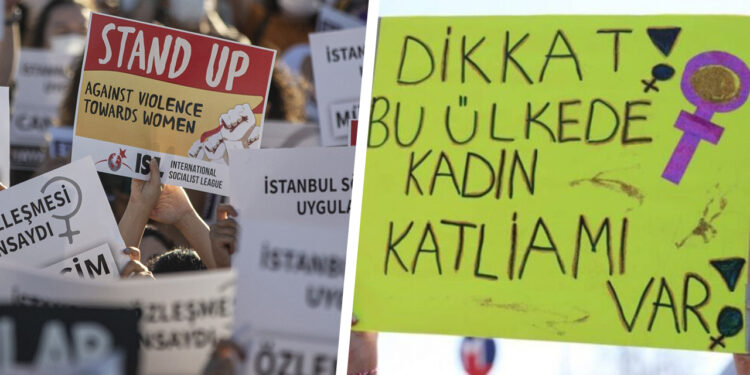Eight women have been murdered in six Turkish cities within one 24-hour period, sparking calls for urgent action against gender-based violence.

Eight women have been murdered in six cities across Turkey within one 24-hour period, sparking urgent calls for action against the rising tide of gender-based violence. The murders occurred in İzmir, Adana, Balıkesir, Diyarbakır (Amed), Antalya and Gaziantep (Dîlok) on 23 and 24 June, highlighting the severe and ongoing crisis in gender-based violence under the current Justice and Development Party (AKP) government.
In İzmir’s Konak district, Fatma Kahraman was fatally shot by her husband, Rıdvan Kahraman, who was later apprehended. On the same night, Sedat Mertoğlu attacked his estranged wife, Gülsüm Mertoğlu, with a sharp instrument, resulting in her death. Sedat Mertoğlu remains at large.
In Adana’s Seyhan district, Hakim Eba killed his estranged wife, Şükran Eba, along with her family members. Eba, armed with a gun, murdered Şükran, her brother Muhammet Erat and her parents Leyla and Turgut Erat before fleeing.
Other tragic incidents include the murder of Maizer Gökyıldız by her husband, Cevri Gökyıldız, in Balıkesir. Cevri Gökyıldız then attempted suicide and is currently in a critical condition. In Diyarbakır, Hilal Kar was shot and killed, allegedly by her religiously wedded partner, known only as M.D.. In Antalya, Ayten Çağıran was stabbed to death by her ex-husband, Abdülkadir Kocaoğlu, who was arrested at the scene. And in Gaziantep’s Ereban district, Fatma Mercandağı was shot dead by her husband, Mehmet Emin Mercandağı, who was subsequently detained by authorities.
In Turkey, femicide remains a pervasive societal issue. The AKP government, alongside its ultra-right ally the Nationalist Movement Party (MHP), withdrew from the Istanbul Convention in 2021, opting against adopting measures to combat the epidemic of violence against women. The Turkish legal system, particularly its regime of execution of sentences, permits those who commit severe crimes, especially against disadvantaged groups such as women, children and animals, to evade accountability. This systemic inequality primarily targets dissidents rather than delivering justice for society at large. Women’s rights organisations argue that this is why crimes against women, especially violence and femicide, remain uncontrolled.








Leave A Comment